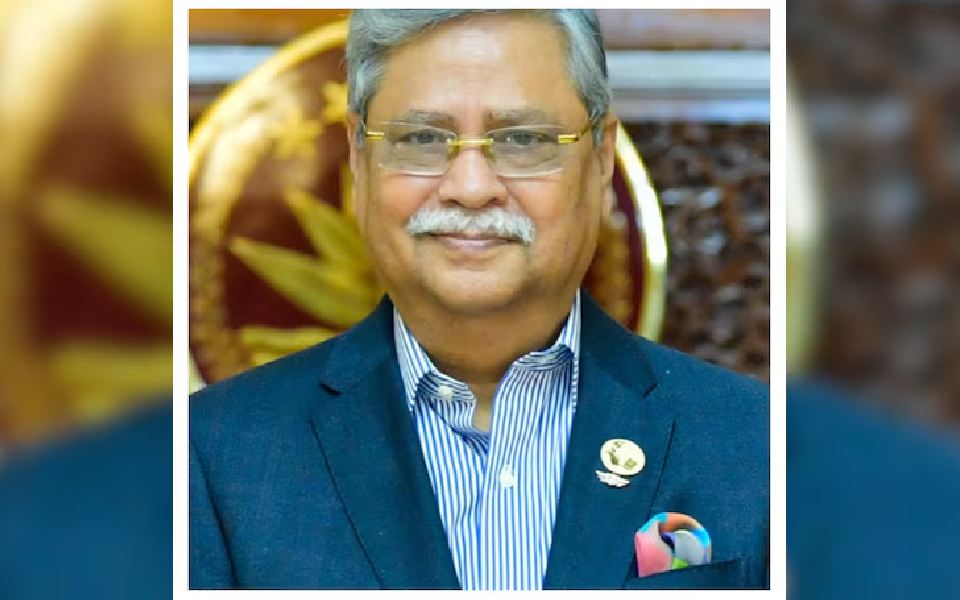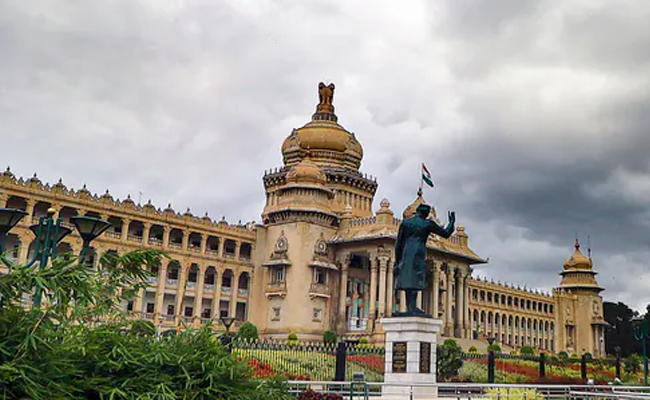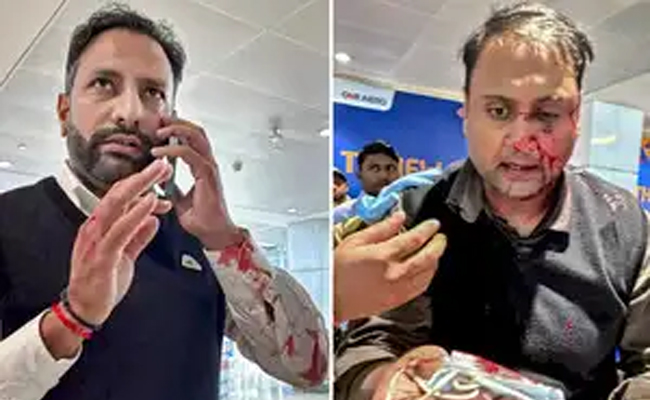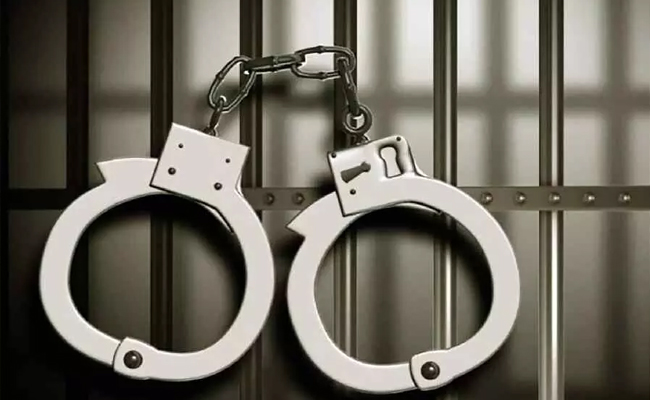Dhaka, Aug 6: Bangladesh President Mohammed Shahabuddin on Tuesday dissolved the parliament to make way for the formation of an interim administration, a day after prime minister Sheikh Hasina resigned and fled the country following massive protests against her government.
"The President dissolved the Jatiya Sangsad (Parliament) under an executive order," a Bangabhaban (presidential palace) spokesman told PTI.
"The decision to dissolve the parliament was taken following the president's discussions with chiefs of three staff of armed forces, leaders of different political parties, representatives of civil society and leaders of the Anti-Discrimination Student Movement," said a statement issued by the president's office.
Officials said a full-fledged interim government is expected to be announced later Tuesday. The president's move to dissolve the parliament has cleared the way for fresh elections.
The spokesman also said Bangladesh Nationalist Party (BNP) chief and ex-premier Khaleda Zia was freed from house arrest. The 79-year-old former prime minister has long battled various ailments, including issues related to the kidney, lung and heart.
The process to release those arrested Since July 1 has started, and many have already been released, he added.
The Students Against Discrimination group earlier set a deadline for dissolving the 12th parliament which was formed after the January 7 elections installing Hasina as the premier for the fourth straight term.
In a video posted on social media early Tuesday, Nahid Islam, one of the key coordinators of the movement, proposed Nobel laureate Mohammad Yunus as the head of interim government.
He said they have already talked with 84-year-old Yunus, who has agreed to take the responsibility to save Bangladesh.
"No government other than the one proposed by the students will be accepted. As we have said, no military government, or one backed by the military, or a government of fascists, will be accepted," said Nahid, flanked by two other coordinators.
Yunus is currently out of the country but welcomed the ouster of Hasina’s regime, describing the development as the “second liberation" of the country. He won the Nobel Peace Prize in 2006 for his anti-poverty campaign through the Grameen Bank, a mode; which was replicated across continents.
He has agreed to lead the interim government as its chief adviser, the Daily Star reported, citing a source.
"If the students can sacrifice so much, if the people of the country can sacrifice so much, then I also have some responsibility. Then I told the students that I can take the responsibility," Yunus said.
He had been in a protracted row with Hasina’s government due to obscure reasons while authorities initiated a series of investigations against him after she came to power in 2008. He was charged under dozens of cases. In January, Yunus was sentenced to six months in jail by a court on charges of labour law violation.
Meanwhile, the death toll in the anti-government protests on Tuesday climbed to 440, with 100 more deaths reported after Hasina's departure, according to local media, even as efforts were on by the army to bring the situation under control in the violence-hit nation.
Despite the high death toll, there were signs of a return to normalcy on Tuesday, with police and army patrolling the streets, BDNews24.com news portal said.
The situation in Dhaka was largely calm on Tuesday after a day of unrest and a night of tension. Buses and other public transport were on the streets and traders were opening shops. Government vehicles were heading to offices. Many battery-run rickshaws plied the roads, it added.
Additional IGP AKM Shahidur Rahman was on Tuesday appointed as the focal person of the Bangladesh Police. He will act as the coordinator within the police force during this crisis period. The move comes as senior officials of the police force are trying to normalize police operations by overcoming anger, resentment, and fear.
Bengali language daily Prothom Alo reported that at least 109 people were killed in clashes in different parts of the country, including Dhaka, during the anti-discrimination student movement on Monday.
The newspaper earlier reported the death of 98 people till 12 pm on Sunday. Another 16 deaths were reported in the night. The total death toll stood at 114 on Sunday.
"With this, the total death toll stood at 440 in 21 days from July 16 to yesterday,” the paper said.
The clashes between protesters demanding Hasina's resignation over the quota system in government jobs and the ruling Awami League supporters in different parts of Bangladesh erupted on Sunday days after more than 200 people were killed in violent clashes between police and mostly student protesters in July.
As the news of Hasina’s departure spread on Monday, hundreds of people broke into her residence, vandalising and looting the interiors, providing dramatic expression to the anti-government protests.
Hasina's private residence Sudha Sadan and other establishments were attacked, vandalised and set on fire in the capital. The residences and business establishments of ministers, party MPs and leaders of Hasina's Awami League government were also attacked in Dhaka and outside Dhaka.
At least 24 people were burnt alive last night in a hotel owned by a leader of Awami League in western Joshor district, hospital sources said.
The educational institutions were reopened on Tuesday following a long period of closure due to violence surrounding the student movement. However, the educational institutions in Dhaka saw low attendance, the Dhaka Tribune newspaper reported.
Attendance in the ministry offices was significantly low, and ministers and Members of Parliament were notably absent. Those who did come to work were filled with fear and anxiety, it added.
Army members were seen on duty alongside police officers at the Home Ministry office.
Let the Truth be known. If you read VB and like VB, please be a VB Supporter and Help us deliver the Truth to one and all.
Bengaluru: Government employees in Karnataka have urged the state government to scrap the New Pension Scheme (NPS) and bring back the Old Pension Scheme (OPS), The New Indian Express reported.
The demand was made by the Karnataka State Government Employees’ Association, whose leaders met senior IAS officer Uma Mahadevan on Monday and submitted a memorandum. The association asked the NPS Review Committee, headed by senior IAS officer Anjum Parvez, to recommend the reintroduction of OPS in the state.
Association president C.S. Shadakshari reportedly said the review committee has already visited Rajasthan, Himachal Pradesh, Andhra Pradesh and Telangana where NPS was revoked and OPS re-implemented. The committee is yet to submit its report, but has told the government it will do so soon.
ALSO READ: Udupi man loses Rs 55,000 in Facebook graphics card scam
Shadakshari allegedly said NPS has been in force in Karnataka since 2006. He pointed out that West Bengal never adopted the scheme, while Andhra Pradesh and Telangana replaced NPS with a contributory pension model.
States including Rajasthan, Chhattisgarh, Himachal Pradesh, Punjab and Jharkhand have already scrapped NPS through cabinet decisions or budget announcements.
“Under NPS, 10% of the employees’ basic salary and DA, and 14% contribution from the state is credited to the employees’ fund. It constitutes 24% of the total which is non-withdrawable. This is invested in the share market and the final amount depends on the ups and downs of the market,” TNIE quoted Shadakshar as saying.
As per the report, he said that by limiting its contribution to 14%, the government could save up to ₹1.87 lakh crore annually if all vacancies are filled, strengthening the case for bringing back the old pension system.





